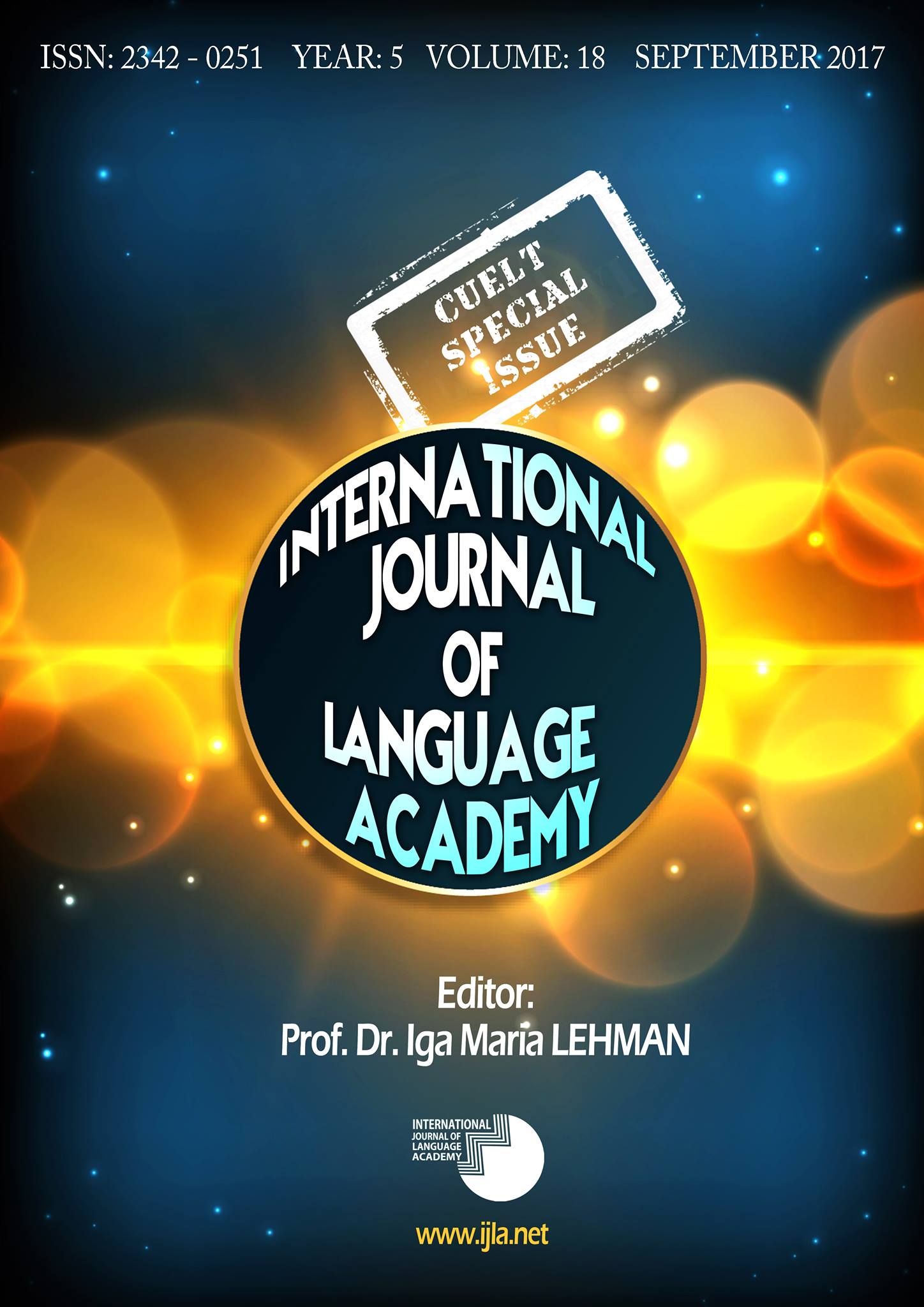Author :
Abstract
Bir dizi üstbilişsel stratejiler gerektirdiğinden, bir metnin anlaşılmasının zorlu bir süreç olduğu konusu genel kabul görmektedir. Pek çok alanda akademik başarı büyük oranda okuma becerisine bağlı olduğundan, öğrenciler için eleştirel bir bakış açısıyla okuyabilmek ve üstbilişsel becerileri başarılı bir biçimde kullanarak gerekli bilgileri metin içerisinde ayırt edebilmek oldukça önemlidir. Bu bağlamda, bu çalışmanın amacı İngilizce öğretmenliği öğrencilerinin akademik bağlamda üstbilişsel okuma stratejileri farkındalığını araştırmayı amaçlamaktadır. Çalışma nicel bir çalışmadır ve yöntem olarak tarama yöntemi kullanılmıştır. Çalışmaya uygun örnekleme yöntemiyle seçilen ve Aksaray Üniversitesi'nde okumakta olan 122 İngilizce öğretmenliği öğrencisi katılmış, veriler 2016-2017 akademik yılı bahar döneminde toplanmıştır. Verilerin toplanmasında Mokthari ve Reichard taraafından geliştirilen ve toplamda 30 madde ve küresel okuma stratejileri, problem çözme okuma stratejileri ve destekleyici okuma stratejileri olmak üzere 3 boyuttan oluşan Okuma Stratejileri Üstbilişsel Farkındalığı ölçeğiyle toplanmıştır. Sonuçlara göre, hazırlık sınıfında ve üçüncü sınıfta okuyan öğrencilerin farkındalığı diğer sınıflardan yüksektir ancak bu fark istatistiki olarak anlamlı değildir. Tüm sınıflarda katılımcılar tarafından en sık kullanılan üstbilişsel okuma stratejisi problem çözme olmuştur. Katılımcıların okuma stratejileri üstbilşisel farkındalığı gelekte sahip olmayı planladıkları eğitim seviyesine (lisans, yüksek lisans ve doktora) göre istatistiki olarak anlamlı biçimde farklılaşmaktadır.
Keywords
Abstract
It has been acknowledged that comprehending a text is a challenging process, as it requires a series of metacognitive strategies. As academic achievement in a wide range of subject depends largely on reading skill, it is critically significant for the students to be able to read critically and extract information from the text by executing the metacognitive strategies successfully. In this respect, this study aims to investigate university students’ metacognitive reading strategy awareness in academic context. The study employs the quantitative design and survey method and observes the level of using metacognitive reading strategies by 122 EFL student teachers who were sampled through convenient sampling method studying at Aksaray University. The data was collected through Metacognitive Awareness of Reading Strategies inventory developed by Mokhtari and Reichard that consists of 30 items and three subscales namely global reading strategies, problem-solving reading strategies and support reading strategies. According to the results, students that are in senior and prep level have a higher metacognitive awareness than the other levels but the difference is not statistically significant. The most commonly used metacognitive reading strategy in all groups is PROB. Participants’ use of metacognitive reading strategies differ in a statistically significant way in terms of their plans on academic career.





